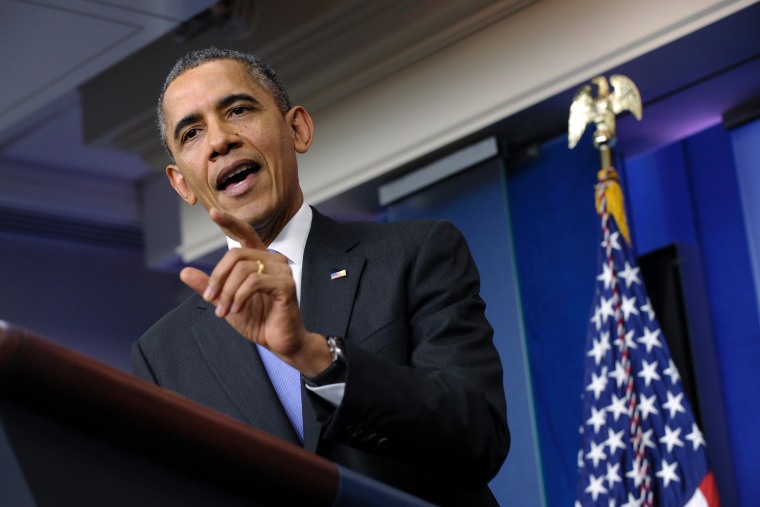
By David Gregory
If there is a great debate at the core of the Obama presidency, it is about the role of government in solving big problems. When our banking system veered toward collapse, government stepped in. When the auto industry wobbled, government again intervened. President Obama achieved a major progressive goal – universal health care. The administration also seeks to achieve more efficiency in our health care system through government intervention. On top of that, the welfare state programs of the New Deal and the Great Society are running into trouble. Republicans and Democrats have different ideas about how to fund and fix them. In recent weeks the President has suggested government should address income inequality and more limited social mobility in the U.S. 2014 may begin with a battle over increasing the minimum wage.
The scale of government’s role in dealing with these pressing issues has unleashed a period of great upheaval and argument in our national politics. Does that mean compromise is out of reach?
Yuval Levin, a conservative, is out with a new book about the ideological debates of the country’s founding called “The Great Debate.” He notes that liberals and conservatives are actually arguing about their most fundamental disagreements. That’s a good thing. This is a moment of great clarity between Left and Right.
And while such divisions mean not much policy progress is being made, it is not, he argues, a reason for despair. His former boss, President George W. Bush, often reminded aides like Levin during tough political patches, that President Lincoln had it worse.
“I think it’s important to keep some perspective on what this country’s been through and you know, even a four year period where half a million people killed one another along the east coast,” Levin said. “Our politics has a way of finding its balance and I do think that’s happening now.”
Finding the balance can be measured in small steps. Take this week’s budget compromise. It’s a small deal. It doesn’t tackle hard stuff like entitlements. But it was something. Budget Committee chairman Paul Ryan spoke about it in basic terms. “We’re actually starting to talk to each other, which is kind of new for this day and age.”
Democrat Patty Murray during that same Meet the Press interview added, “We can’t take on the tough discussions unless we can learn to use the word ‘compromise.’”
Unfortunately, these signs of compromise amount to small exceptions. The reality of the unresolved issues on the budget will smack us in the face come January when Republicans will again press for concessions from the White House before raising the debt ceiling.
The question is, how does this great debate work itself out? The system does not work through such big debates quickly. Take government surveillance by the NSA. Congress has been afraid to rethink the power it vested in the executive branch to take action in the name of national security after the September 11th attacks. So only now, twelve years after the attacks, is there a presidential commission recommending to the president that the government scale back its surveillance. Our culture of technology has changed and so has public opinion about the balance between privacy and security.
The author and historian Allen Guelzo of Gettysburg College argues this period of polarization has been a long time brewing and resembles previous periods of sharp ideological divide in the country: the 1790s, the period of the birth of our political parties, and the tumultuous 1850’s, which foreshadowed the secession of the Southern states. The difference between then and now, he argues, is culture. “Culture is the tail that wags the dog of politics.” By this he means forces like local government, for example, move ahead on policy changes while Washington remains stuck.
The fear is that while politicians bicker in Washington, Rome burns. Too many big problems to tackle, too little consensus in Washington.
And yet, there are signs of real humanity in Washington.
Conservative Republican Senator Jim Inhofe, Oklahoma, lost his 52 year-old son Perry in a plane crash last month. I spoke to the senator about his loss and his attitude about politics as a result. “The differences are still there,” he told me during an interview with tears welling up in the corner of his eyes. When his son died, he was moved by the number of Democrats who reached out to comfort him- even more, he admitted, than fellow Republicans. “Your attitude changes. And I can’t help but think when I’m confronting someone on something in which we disagree that I know how they responded to my loss and how we got closer.”
A friend thought Inhofe’s story was a sign of how bad things have gotten around here, that a Senator finds it notable that Democratic colleagues would be nice after his personal loss.
Yes, but what have we all learned from Pope Francis this year about the power of small gestures. Maybe this is a start. Before leaving Washington for Hawaii for Christmas, President Obama promised that 2014 would be a “year of action.” We’ll see. The debates are still roiling.